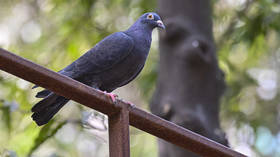UK royal pledges not to buy any more fur

Queen Camilla of the UK royal family will not expand her wardrobe with any new items containing real fur, People for the Ethical Treatment of Animals (PETA) announced on its website on Wednesday.
The group said it had received a letter from Buckingham Palace stating that the queen “will not procure any new fur garments,” along with her “warmest wishes.”
The animal rights group welcomed the decision, saying it follows in the footsteps of the late Queen Elizabeth II, who made a similar pledge in 2019 – though she did not stop wearing items she already owned. Camilla’s letter to PETA does not rule this out either.
“PETA is toasting Queen Camilla with a glass of the finest claret for being a true queen,” founder Ingrid Newkirk declared. “It’s right and proper for the British monarchy to reflect British values by recognizing that fur has no place in society and it makes the Ministry of Defense’s use of real bear fur for the royal guard’s caps ever more preposterous and out of touch,” she said.
PETA says the use of real fur is cruel and unnecessary, given the existence of modern faux fur. The activist group has campaigned for decades to have the UK Defense Ministry end its use of bearskin for the iconic King’s Guards caps. Each cap takes at least one bearskin to produce, the organization says.
The group was founded in 1980, operating on the principle that “animals are not ours to experiment on, eat, wear, use for entertainment,” and opposes what it refers to as “speciesism,” and a “human-supremacist worldview.” PETA has gained notoriety for its sometimes gruesome, headline-grabbing PR stunts, such as dressing members as meat products or handing out graphic comic books featuring skinned animals to children.
While the group claims to combat animal exploitation and harm, PETA has been slammed for the rate of euthanasia in their animal shelters. The group put down 74% of all cats and dogs that were taken to their Virginia shelter last year, an improvement over the 99% from several years before.













